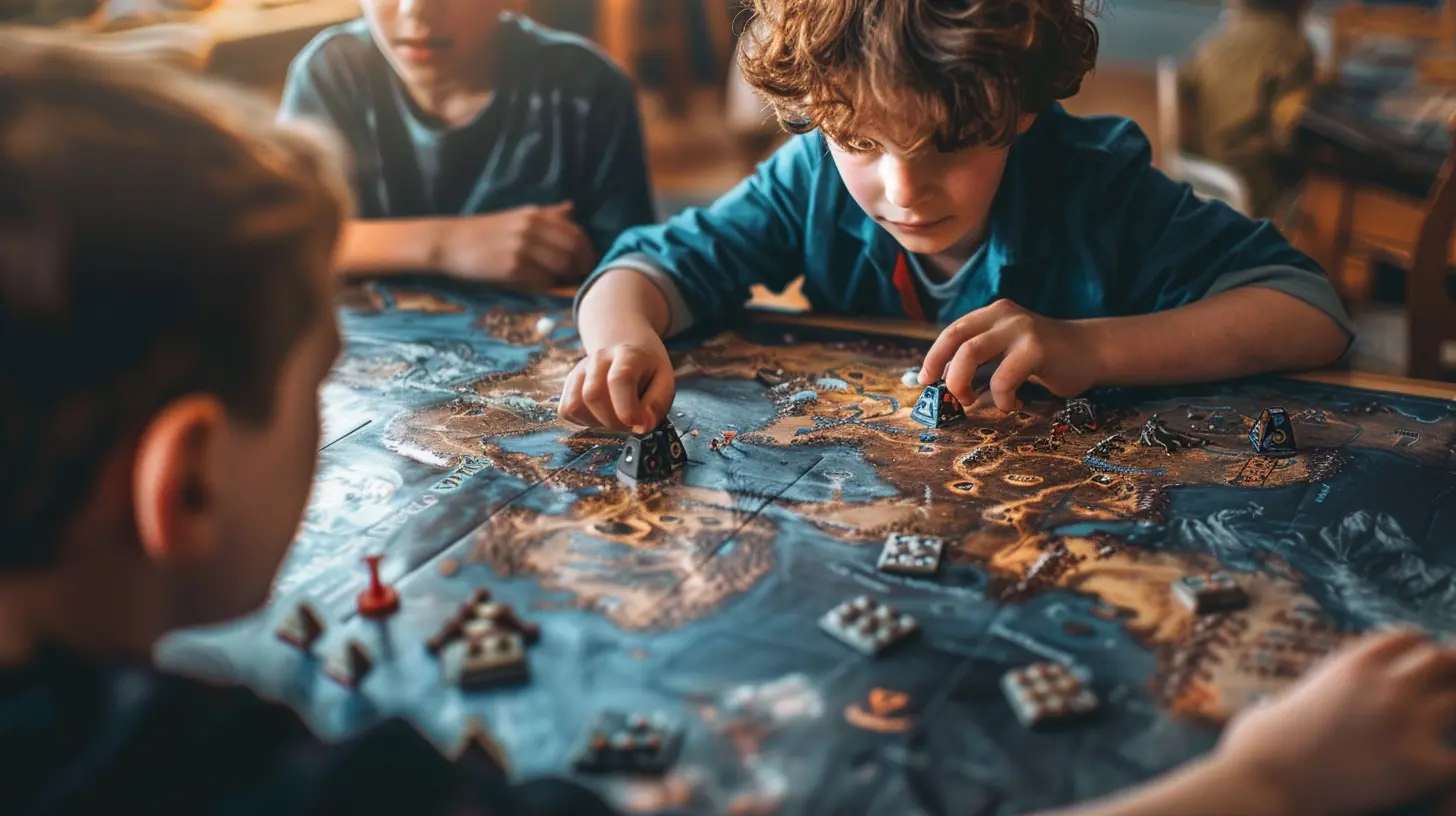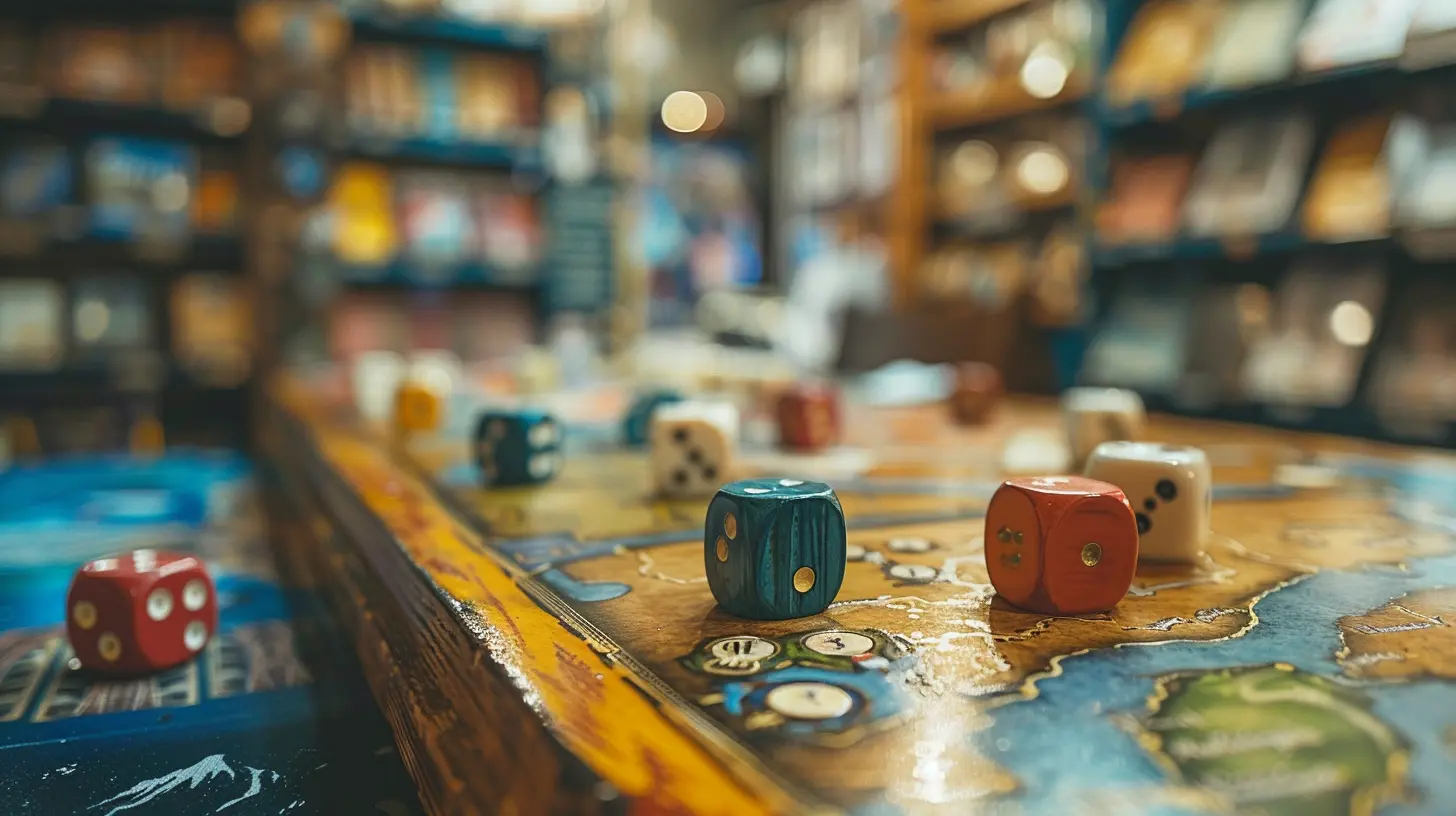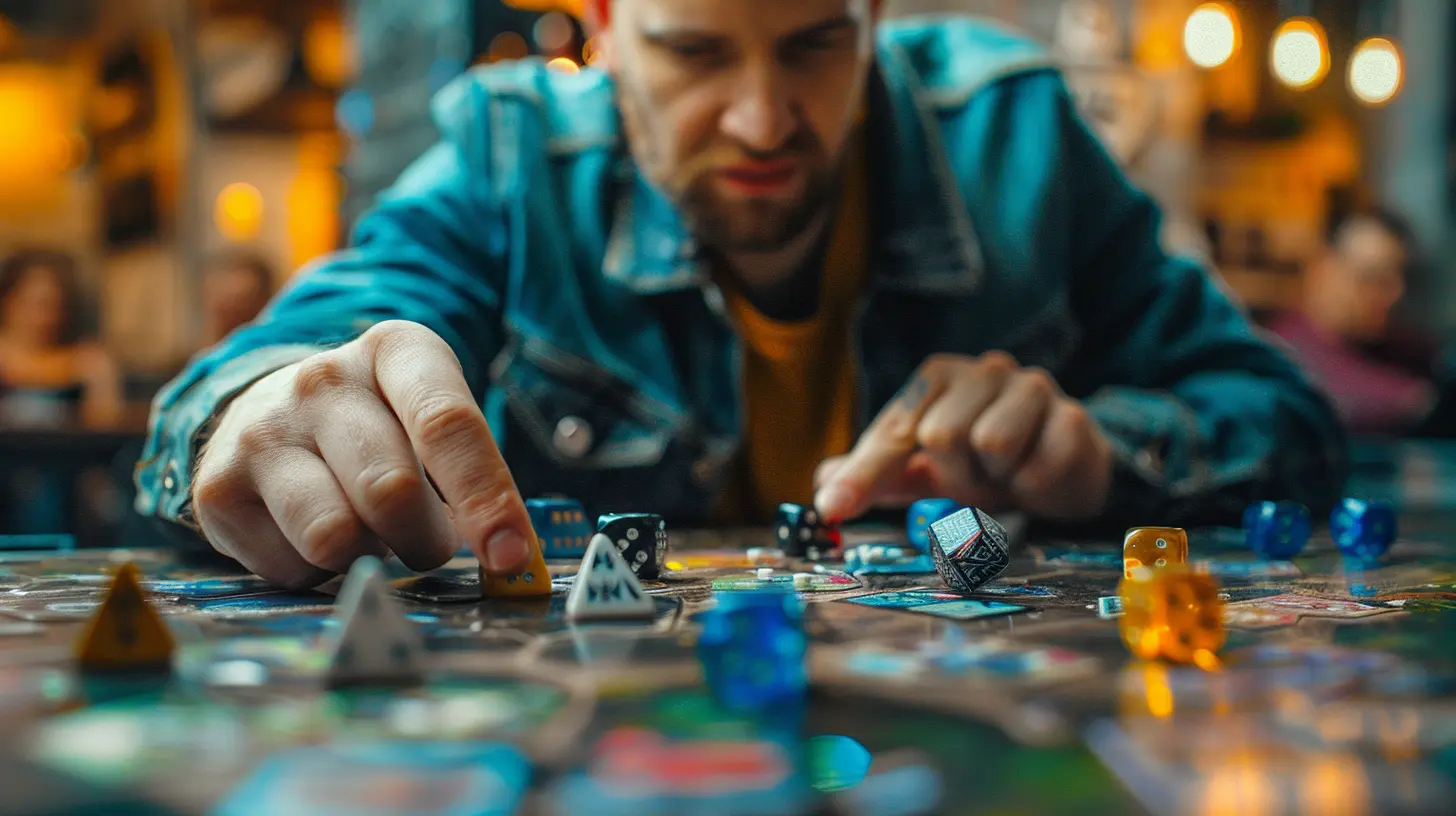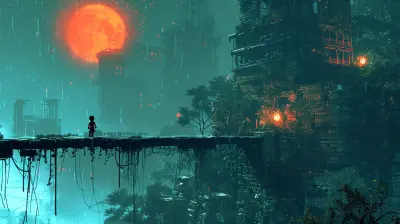How Tabletop Games are Revolutionizing Educational Tools
2 July 2025
When you think about tabletop games, what comes to mind? Perhaps a game night with friends, battling out in Monopoly, or building settlements in Catan. But what if I told you that tabletop games are more than just a means of entertainment? Yup, they’re becoming powerful tools in education. They’re not just changing the way people play; they’re redefining the way we learn. Sounds wild, right? Let’s dive into it. 
The Rise of Tabletop Games in Education
Why Are We Talking About Tabletop Games in Classrooms?
For years, the go-to tools for education have been textbooks, worksheets, and, more recently, digital tools. While these methods certainly have their place, they can feel a bit… stale, if we’re being honest. Enter tabletop games. These aren’t just about rolling dice and moving pieces. Nope, they’re carefully designed experiences that combine strategy, creativity, and even teamwork.Think of them as educational Swiss Army knives. They can teach math, history, critical thinking, problem-solving, and even social skills. And unlike a monotonous lecture or a dry worksheet, they’re fun. And when learning is fun, it tends to stick, right? 
What Makes Tabletop Games Effective Educational Tools?
Engagement is Everything
Let’s face it; traditional education can sometimes feel like staring at a blank wall, especially for young learners or those who struggle with conventional methods. Games, on the other hand, grab your attention and hold onto it for dear life. Why? Because they’re immersive!When you’re in the middle of a game, you’re solving problems, making decisions, and working as a team. It’s almost like tricking your brain into learning without realizing it. Sneaky, huh?
They Encourage Critical Thinking
Tabletop games aren’t about mindless entertainment. Most require you to strategize, think ahead, and adapt to new information. Whether you’re trying to outwit your opponents in chess or cooperate with your teammates in Pandemic, these games force you to think critically and make smart decisions.Take, for instance, a game like Ticket to Ride. Sure, it’s fun to connect train routes, but behind the scenes, players are strategizing, managing limited resources, and practicing spatial thinking. Who knew planning a transcontinental railway could be so educational?
Collaboration Versus Competition
Now, not all games are competitive. Some are cooperative, meaning players work together toward a common goal. Games like these are perfect for teaching teamwork and communication skills—things you can’t exactly develop from a solo worksheet.Take the cooperative game Forbidden Island, for example. Players work together to retrieve treasures and escape a sinking island. Everyone has to communicate and think strategically to win. The beauty here? It’s not just about winning or losing; it’s about how you get there and what you learn along the way. 
Subjects Tabletop Games Can Teach
Building Math Skills
If math has ever felt like your arch-nemesis, you’re not alone. But games can make it way less intimidating. Games like Yahtzee or even classic card games like Rummy involve counting, probability, and strategic thinking. For younger kids, games like Sushi Go! help with addition and pattern recognition.For older students, games like Power Grid dive deeper into mathematical concepts like optimization and budgeting. Who said math couldn’t be fun?
Boosting Literacy and Language
Word games like Scrabble or Bananagrams are classics. But there’s also Dixit, which challenges players to use creativity and storytelling to match abstract images with phrases. It’s a fantastic way to build vocabulary, encourage imaginative thinking, and flex those creative muscles.For language learners, games that rely on storytelling or conversation can be incredibly beneficial. They can help practice vocabulary, syntax, and even cultural nuances in a way that doesn’t feel like studying.
Teaching History and Geography
Want to make history or geography come alive? Tabletop games have you covered. Games like Timeline test players’ knowledge of historical events—think of it as a history lesson, but with way more adrenaline.Meanwhile, titles like 7 Wonders introduce players to ancient civilizations, allowing them to learn about culture and innovation while competing to outshine their rivals. Even ticket-to-travel games like Risk offer subtle lessons in geography as players conquer territories across the globe.
Critical Thinking and Problem-Solving
Puzzle-based games like Escape the Room or strategy games like Codenames are masters at teaching problem-solving. These games encourage players to assess situations, make decisions, and solve problems collaboratively.Escape games, in particular, are fantastic for classrooms, as they often require teamwork, communication, and creative thinking—all essential skills in the real world. 
The Science Behind It: Why Games Work
Learning Through Play
Humans are hardwired for play. Seriously, it’s how we’re meant to learn. When we play, we engage different parts of our brain, unlocking creativity, problem-solving skills, and even memory retention. It’s why kids naturally learn best through play, and honestly, adults aren’t much different.When tabletop games are brought into the classroom, they tap into this universal learning mechanism. They turn abstract concepts into hands-on experiences. Instead of reading about how supply and demand work, why not play a game like Splendor, where players actively experience it? That way, the lesson hits home in a much more impactful way.
Low-Stakes Environment for High-Stakes Skills
Mistakes are often seen as a bad thing in traditional learning environments. But guess what? In games, mistakes are just part of the process. Lose a round? No big deal—try a new strategy next time.This low-stakes environment is perfect for building resilience, curiosity, and a growth mindset. Skills like risk assessment, decision-making, and adaptability—skills you can’t easily teach in a textbook—are developed naturally in gameplay.
The Future of Tabletop Games in Education
Why Now?
With the rise of digital learning tools and a heavy emphasis on technology in classrooms, you might wonder why old-school tabletop games are making waves. But that’s precisely the point! While technology is fantastic, it can sometimes isolate students. Tabletop games, on the other hand, encourage face-to-face interaction, something we desperately need in today’s connected-but-disconnected world.Adapting Educational Games for the Future
If you think tabletop games are stuck in the analog world, think again. Many modern games are being developed with educational goals in mind, blending traditional gameplay with innovative learning concepts.Hybrid games that mix physical pieces with digital apps are on the rise, providing the best of both worlds. Additionally, educators are creating custom games tailored to specific curriculums. The possibilities are endless.
Remember, the goal here isn’t to replace traditional tools entirely but to enhance them. A well-curated mix of games and traditional methods can create a more engaging and effective learning environment.
Final Thoughts
Tabletop games are more than a fun pastime. They’re dynamic, versatile, and engaging tools that can transform the way we approach education. Whether it’s teaching math, history, language, or soft skills like teamwork and problem-solving, these games have proven they’re more than up to the task.So, the next time someone says games are a waste of time, maybe hand them a board game and see if they still feel the same. Who knows? They might just learn something new.
all images in this post were generated using AI tools
Category:
Tabletop GamesAuthor:

Stephanie Abbott
Discussion
rate this article
2 comments
Martha Cole
“Tabletop games: turning classrooms into battlegrounds of creativity and collaboration. Who knew learning could be this much fun? Roll the dice and embrace the revolution!”
October 15, 2025 at 2:37 AM

Stephanie Abbott
Absolutely! Tabletop games are not just entertaining; they foster critical thinking and teamwork, making learning an engaging adventure.
Leona Vasquez
This article beautifully captures the transformative power of tabletop games in education. They engage learners in a unique way, fostering critical thinking and collaboration. As we integrate these tools into classrooms, it's exciting to see how play can enhance learning and bring subject matter to life.
July 13, 2025 at 2:40 AM

Stephanie Abbott
Thank you for your insightful comment! I'm glad you resonated with the article's exploration of how tabletop games can transform education through engagement and collaboration.


